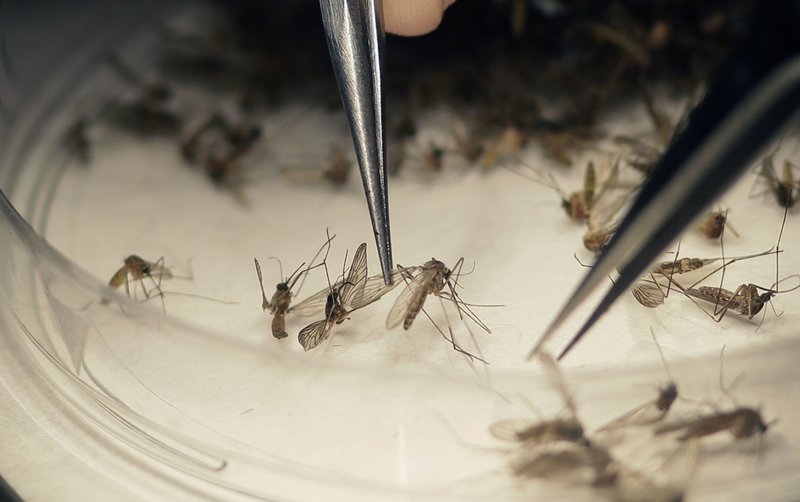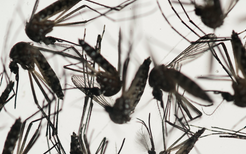WASHINGTON -- The government is shipping Zika virus tests for pregnant women to health departments across the country but warning that there could be temporary shortages, as travelers try to tell whether they returned with an infection that could put a developing baby at risk.
Health officials don't expect widespread transmission of the mosquito-borne virus in the continental United States, but said Thursday that Puerto Rico is especially vulnerable. They asked for emergency funding from Congress to battle an outbreak that is quickly spreading through Latin America.
"We may see rapid spread through the island and we need to respond urgently," Dr. Tom Frieden, director of the Centers for Disease Control and Prevention, told a Senate appropriations subcommittee.
The Zika virus is suspected of causing a rare but potentially devastating birth defect, an abnormally small head, which can indicate underlying brain damage. Brazil has reported an apparent increase in cases of that defect, called microcephaly, as Zika exploded in that country, although scientists haven't definitively proven the link.
"With each passing day the evidence that Zika is causally related gets stronger," Frieden said. "Even in this week, the data that's come out makes it look very much like this is a virus that's what we call neurotropic -- it targets the nerve cells."
His agency last month found the Zika virus in the brain tissue of two dead newborns from Brazil and in placentas from two miscarriages. On Wednesday, European researchers caring for a woman who returned there from Brazil reported a post-abortion autopsy that found the virus in her fetus' severely damaged brain -- one a fraction of the proper size and lacking the usual crinkly folds.
If someone is actively infected, the CDC has a test that diagnoses Zika fairly well. But most people experience no symptoms or very mild one, and the antibody test used to tell afterward if they were infected isn't very accurate. It might reflect prior infection with related viruses instead.
The CDC is urging pregnant women or those trying to become pregnant not to travel to Zika-affected areas. But if they already did, the CDC is telling doctors to test the women for Zika between two weeks and 12 weeks after they return.
The Obama administration has asked Congress for $1.8 billion in emergency funding to fight Zika at home and abroad, including mosquito eradication, study of the microcephaly link and developing a vaccine. "We are stretched," Frieden said, telling lawmakers the money is needed fast, within weeks.
Asked if health officials couldn't instead use unspent money that Congress allocated for Ebola in West Africa, Frieden said those remaining dollars are committed to ensuring the remnants of that outbreak are stamped out.
Speaker Paul Ryan, R-Wis., the U.Í. House speaker, said, "We do anticipate some kind of bipartisan action on this because this ... is a problem we want to get ahead of," Ryan said.
Meanwhile, Brazil has signed an agreement with a Texas research hospital to develop a vaccine against the Zika virus, the country's health minister said Thursday, adding the goal is for the vaccine to be ready for clinical testing within 12 months.
Minister Marcelo Castro said at a news conference that the government will invest $1.9 million in the research, which will be jointly conducted by the University of Texas Medical Branch in Galveston and the Evandro Chagas Institute in the Amazonian city of Belem -- two facilities specializing in study of mosquito viruses.
He said the Health Ministry also has reached vaccine partnerships with the U.S. Centers for Disease Control and Prevention and is looking to work with pharmaceutical giant GlaxoSmithKline because of its role developing a vaccine against Ebola after a deadly outbreak in West Africa in 2014.
Information for this article was contributed by Joshua Goodman of The Associated Press.
A Section on 02/12/2016

